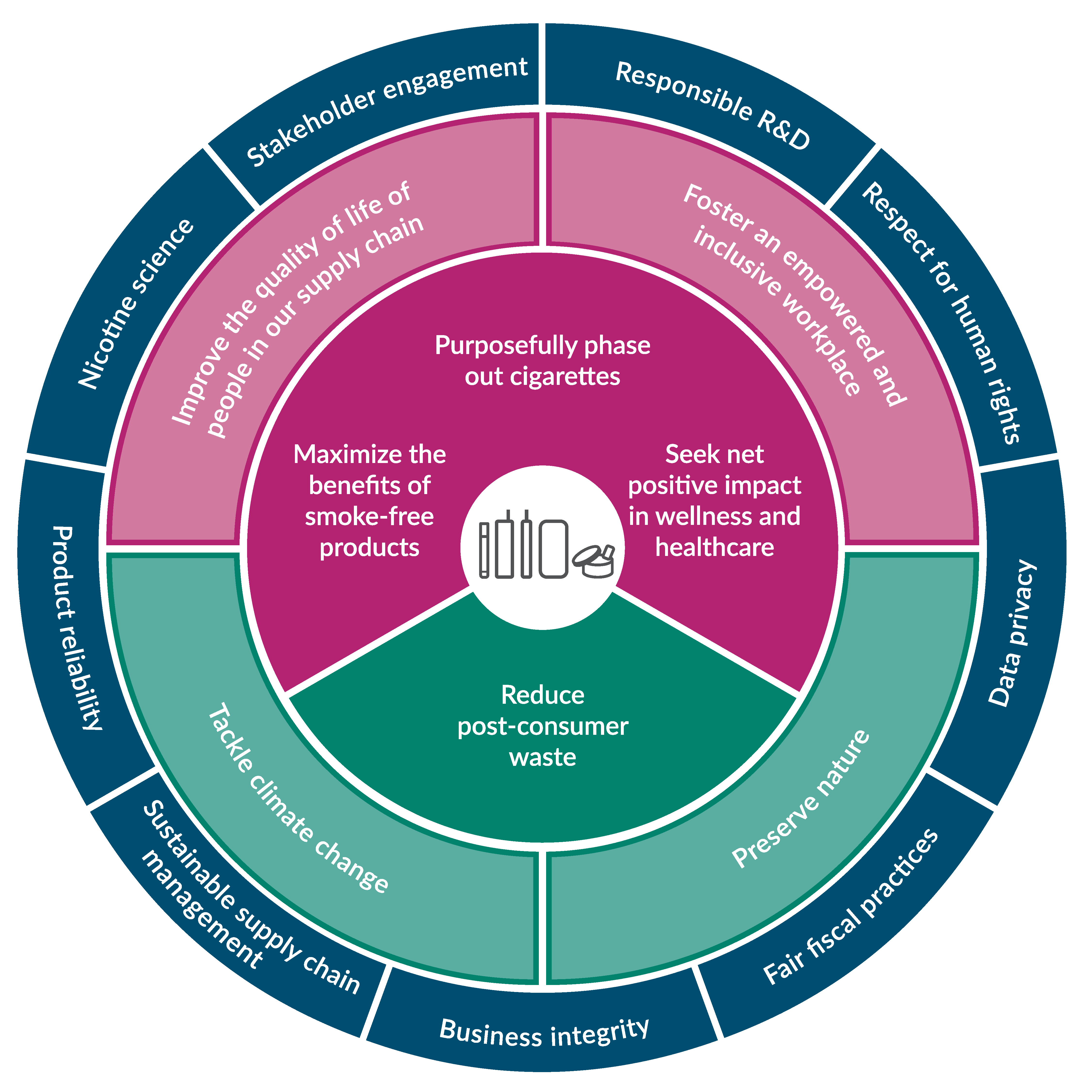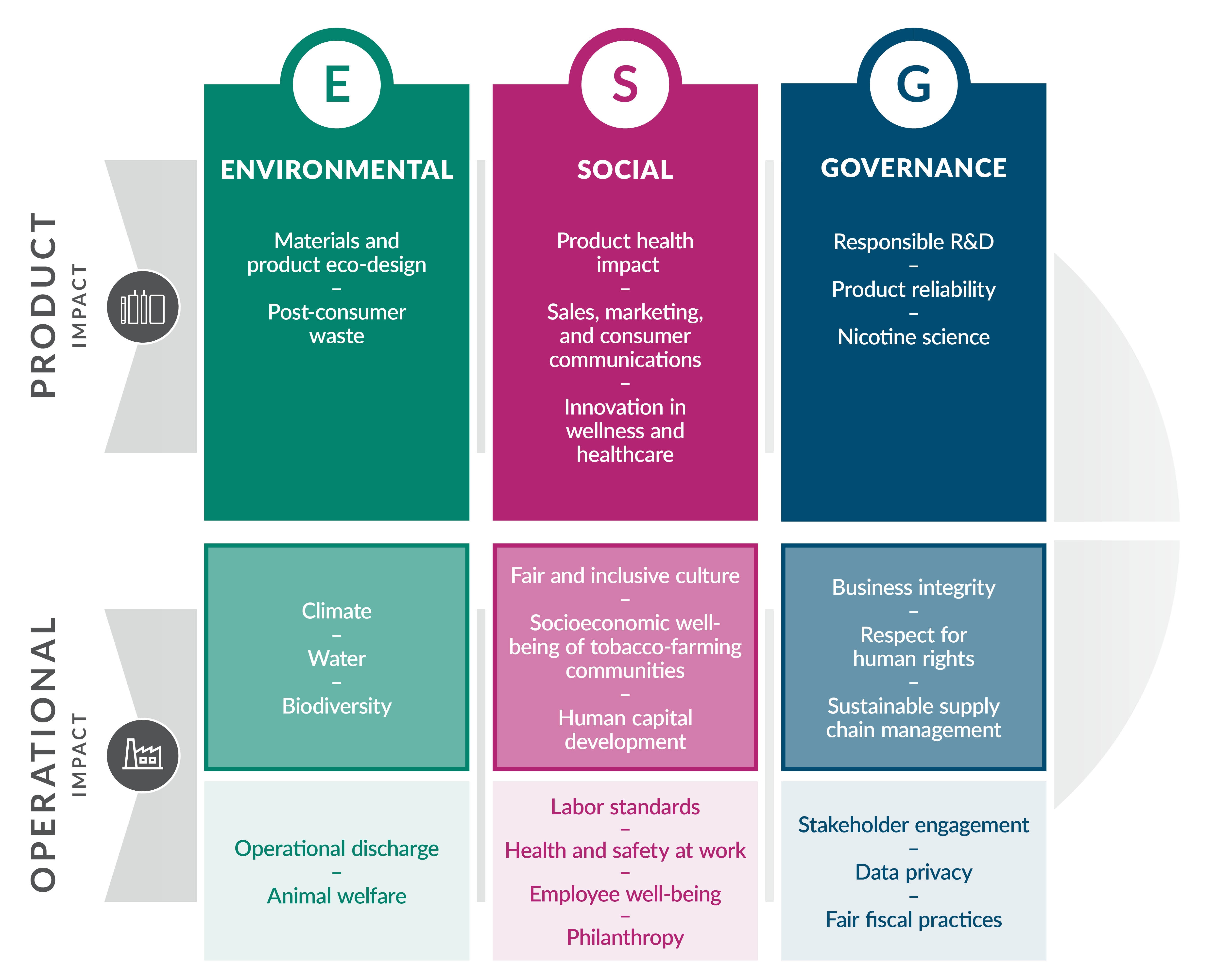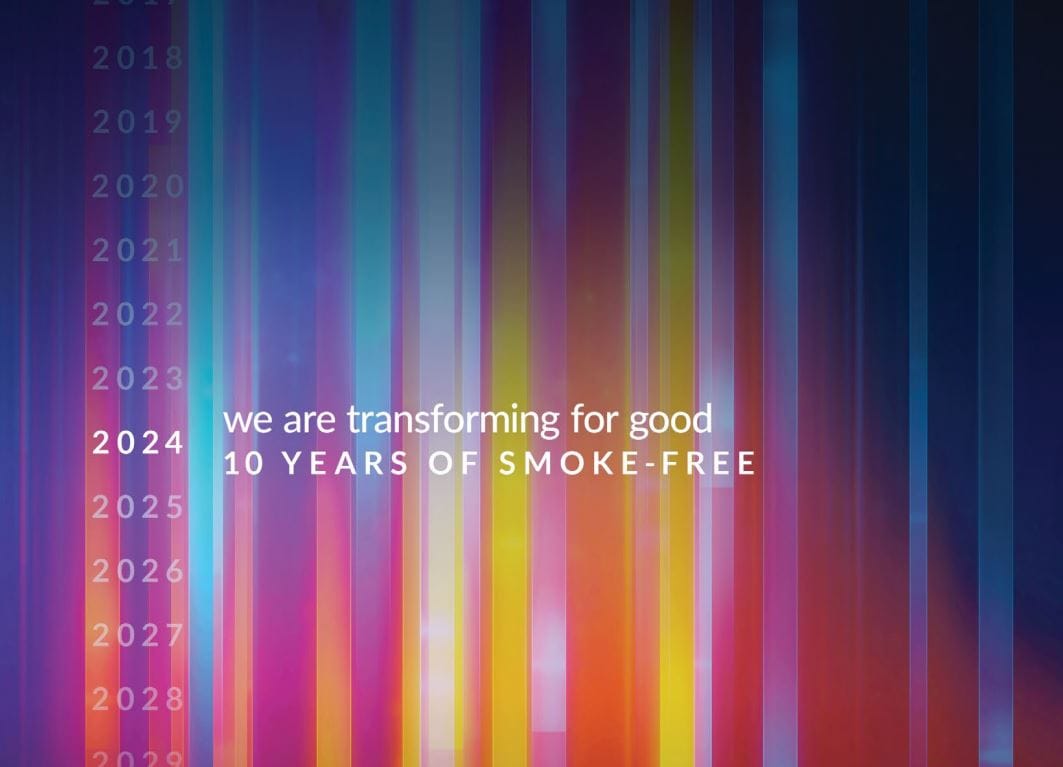Our sustainability strategy
Consistent with the outcomes of our sustainability materiality assessment, addressing the social impacts of our products stands at the core of our sustainability strategy.
The health impact of cigarette smoking is the most significant negative externality we aim to address. Lessening this impact is the most valuable societal contribution we can make and is the cornerstone of PMI’s purpose and business strategy. Focusing our resources on innovating and developing solutions that can contribute to solving some of society’s most pressing challenges represents an opportunity for growth and our strongest competitive advantage.
We deploy a three-pronged approach to address the social impacts of our products:
- Maximize the benefits of smoke-free products: Research, develop, and commercialize nicotine-containing products that are scientifically substantiated to be less harmful than cigarettes, and then seek to ensure that those adults who would otherwise continue to smoke have broad access to these products to expedite the decline of smoking prevalence.
- Purposefully phase out cigarettes: Work to make cigarettes obsolete, with the aim that smoke-free products ultimately replace cigarettes for those who continue to use nicotine, driving their obsolescence.
- Seek net positive impact in wellness and healthcare: With a longer horizon in mind, we are exploring adjacent opportunities for growth in wellness and healthcare, leveraging the capabilities we have accrued and developed while transforming our business.
Our approach to sustainability must also address other material ESG topics related to our products and business operations, including the environmental impact of our products, and the environmental and social impacts across our value chain. To address this broad range of considerations, our three-fold approach to addressing the social impact of our products is complemented with five other impact-driven strategies. Altogether, these eight strategies are equally divided between those that focus on the impacts of our products and those that focus on the impacts of our business operations. Last but not least, all-encompassing governance-related topics set the basis of our success.

Sustainability is more than just a means to minimize negative externalities and mitigate risks while maximizing operational efficiency and resource optimization. We see it as a fundamental opportunity for innovation, growth, and purpose-led, impact-driven, long-term value creation.
Our approach to sustainability is guided by the outcomes of our most recent full-fledged sustainability materiality assessment. During 2023, we conducted a light refresh of our assessment, accounting for two meaningful developments: our change in footprint (driven both by the acquisition of Swedish Match and by our announcement to enter the U.S. in 2024) and recent regulatory developments-especially those focused on mandatory nonfinancial disclosures. Besides minor calibration, this internal review confirmed the outcomes of the 2021 assessment and did not result in changes to our priority ESG topics.
The result of this assessment is a structured ESG framework (depicted below) that showcases those ESG topics we focus and prioritize our resources on. This framework recognizes two distinct forms of issues: those that relate to our products (what we produce), which are part of the “Product Impact” pillar, and those related to our business operations (how we produce), which are part of the “Operational Impact” pillar. We classify each issue based on its environmental, social, or governance-related nature.
Building on our ESG framework, and to properly address these priority issues, we developed eight strategies targeting our most pressing areas of impact. To accompany those strategies, we established 11 goals, which form the basis of our 2025 Roadmap.

Our 2025 Roadmap
PMI's 2025 Roadmap outlines our key goals and informs the route of our company’s long-term plan.
PMI Sustainability Index
PMI's Sustainability Index directly connects our 2025 Roadmap to specific KPIs and aspirations, allowing us to link sustainability performance to long-term executive compensation (read more here).
Related articles
This online content about our Integrated Report should be read in conjunction with PMI’s Integrated Report 2024. This report includes metrics that are subject to uncertainties due to inherent limitations in the nature and methods for data collection and measurement. The precision of different collection and measurement techniques may also vary. This report includes data or information obtained from external sources or third parties. Unless otherwise indicated, the data contained herein cover our operations worldwide for the full calendar year 2024 or reflect the status as of December 31, 2024. Where not specified, data comes from PMI financials, nonfinancials, or estimates.
Unless explicitly stated, the data, information, and aspirations in this report do not incorporate PMI’s wellness and healthcare business, Aspeya. Regarding the Swedish Match acquisition, completed late 2022, unless otherwise indicated, this report includes information pertaining to its sustainability performance. Please also refer to "This report at a glance" on page 2 of the PMI’s Integrated Report 2024 for more information. Aspirational targets and goals do not constitute financial projections, and achievement of future results is subject to risks, uncertainties and inaccurate assumptions, as outlined in our forward-looking and cautionary statements on page 206. In PMI’s Integrated Report 2024 and in related communications, the terms “materiality,” “material,” and similar terms are defined in the referenced sustainability standards and are not meant to correspond to the concept of materiality under the U.S. securities laws and/or disclosures required by the U.S. Securities and Exchange Commission.




